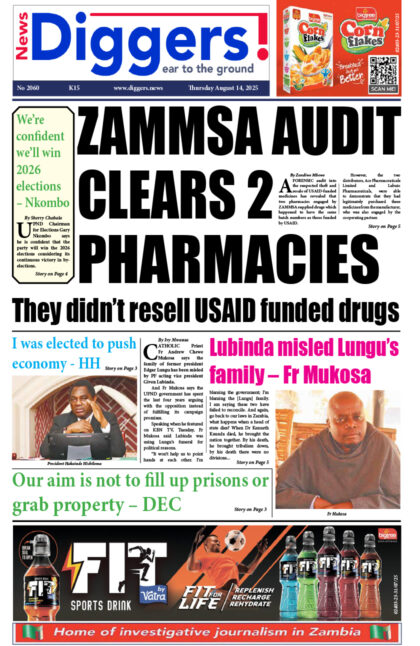THE Centre for Trade Policy and Development (CTDP) says it will be extremely challenging to implement Zambia’s 2021 national budget as the country will find it almost impossible to borrow funds to finance 43 per cent of the budget following the debt default.
In an interview, CTPD researcher Wakumelo Mataa observed that government’s debt default last month sent a negative signal that resulted in the international community having lost confidence in Zambia, which would make implementing next year’s budget much harder because a significant proportion of it is externally funded.
“The most immediate impact of the drop in Zambia’s reputation is a reduction in investor confidence, which will result in a contraction in foreign exchange in-flows. This will lead to an even deeper depreciation in the exchange rate and trigger a sharp rise in our debt servicing costs. In the medium to long-term, as the international community continues to lose confidence in our policies, the country will have serious challenges to borrow from the international markets or if given a chance, it will be subjected to higher borrowing costs. This will present serious challenges to the implementation of the 2021 national budget whose 43 per cent of funding is projected to come from domestic and external financing,” Mataa said.
And he noted that the high inflationary pressure may get worse in the medium-term if no measures were put in place to address the ongoing kwacha depreciation.
“Inflation has continued to be on the rise. A deep depreciation of the exchange rate from about K12/1$ in January, 2020, to about K21/1$ by November, significantly drove the rise in inflation from an average of 11 per cent to about 17 per cent over the same period. Ordinarily, the rise in inflation should have been met by a rise in the Bank of Zambia (BoZ) Policy Rate, which would then seek to drive inflation down towards the 6-8 per cent medium-target range. However, in order to spur economic activity and minimise the impacts of COVID-19 on the economy, BoZ inevitably has to keep low interest rates so as to increase liquidity,” stated Mataa.
“Consequently, BoZ now finds itself in a tight position where it has to decide what concerns it more between inflation and economic recovery. More recently, economic growth concerns have overridden inflation worries for the central bank as it has continued to maintain a lower policy rate, which seeks to ensure more liquidity in the markets and point the economy towards recovery. The inflation situation may get worse in the medium-term if no measures are put in place to address the sustained depreciation in the exchange rate.”
























